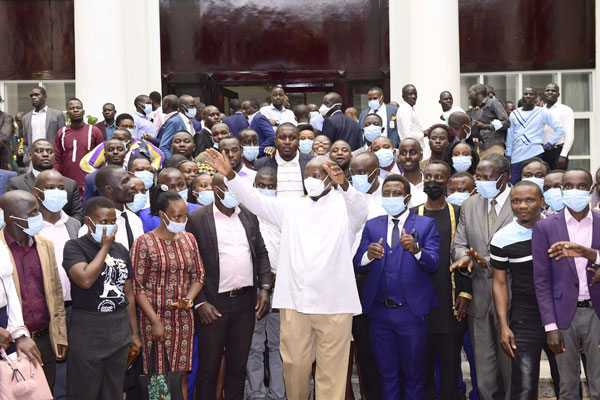Absa accuses two directors of Enjoy Uganda of hiding assets of the company, thus making it almost impossible for it to recover money advanced through a loan.
The Commercial Court has asked directors of Enjoy Uganda to show cause why the court should not lift the corporate veil against their company to allow Absa to recover a loan that remains unpaid since 2021.
The two, including Mr. Sateesh Reddy Atlur and Mr. Rajesh Reddy Atlur, are accused of hiding assets of Enjoy Uganda, which has made it impossible for Absa to recover UGX 82.8 Million being outstanding for a UGX 300 Million loan advanced in November 2018 and costs awarded by the court in November 2021.
“The effect of lifting the corporate veil is that the shareholders and directors, rather than the company, are regarded as the relevant actors on whom the liability of the obligations of the company is placed. Consequently, leave is granted for issuance of a notice against [Sateesh and Rajesh] to show cause why execution of the decree should not proceed,” Justice Stephen Mubiru said in a September 19 ruling.
The ruling resulted from an application in which Absa had asked the court to lift the corporate shield against Mr. Sateesh and Mr. Rajesh, who, in a bid to hide assets of Enjoy Uganda, moved the business from the principal place and refused to disclose its new address. They also refused to meet Absa officials to discuss repayment of the loan.
Court documents show that in 2018, Enjoy Uganda, which at the time operated Shell Ntinda and Shell Kyambogo, applied for and was granted UGX 300 Million for the purchase of fuel from Vivo Energy.
But the company subsequently defaulted, forcing Absa to file an application in the High Court, in which it sought to recover Shs166.9m, but part of it, court documents show, was paid by Mr. Sateesh and Mr. Rajesh, who personally deposited Shs91.5m in Enjoy Uganda’s loan account. However, the bank has failed to recover the balance of Shs82.8m due to non-cooperation of the two directors, thus seeking that court lifts the corporate veil so that the two can bear personal liability on behalf of Enjoy Uganda.
“The applicant [Absa] has learned that [Enjoy Uganda] does not have any assets in its name. [Absa] officials visited Shell Kyambogo and Shell Ntinda, Enjoy Uganda’s known place of business, where they learned that [its] dealership over the two stations had been terminated. Concealment of the company’s place of business and assets is done in bad faith,” court documents indicate.
Absa also noted that one of the director’s last known phone contact was off the network, while the other had refused to meet bank officials when he was contacted, thus asking the court to lift Enjoy Uganda’s corporate veil to allow the bank to recover its money.
In his ruling, Justice Mubiru said Absa had adduced evidence to show that Enjoy Uganda was a sham used to perpetrate fraud, noting that the company had last filed annual returns in 2018, the year in which they took the loan and also ceased business.
“[Mr. Sateesh and Mr. Rajesh] were not engaged in honest enterprise when they closed business without filing a notice of change of address. At the time they took out the loan, the two directors knew, or ought to have known, that there was no reasonable prospect of repaying the debt… they are now hiding behind Enjoy Uganda’s corporate veil to fraudulently frustrate Absa from executing against them,” Justice Mubiru ruled before allowing the application.
A corporate veil basically separates the company from its directors, who are shielded from liabilities arising out from the company’s actions.




















